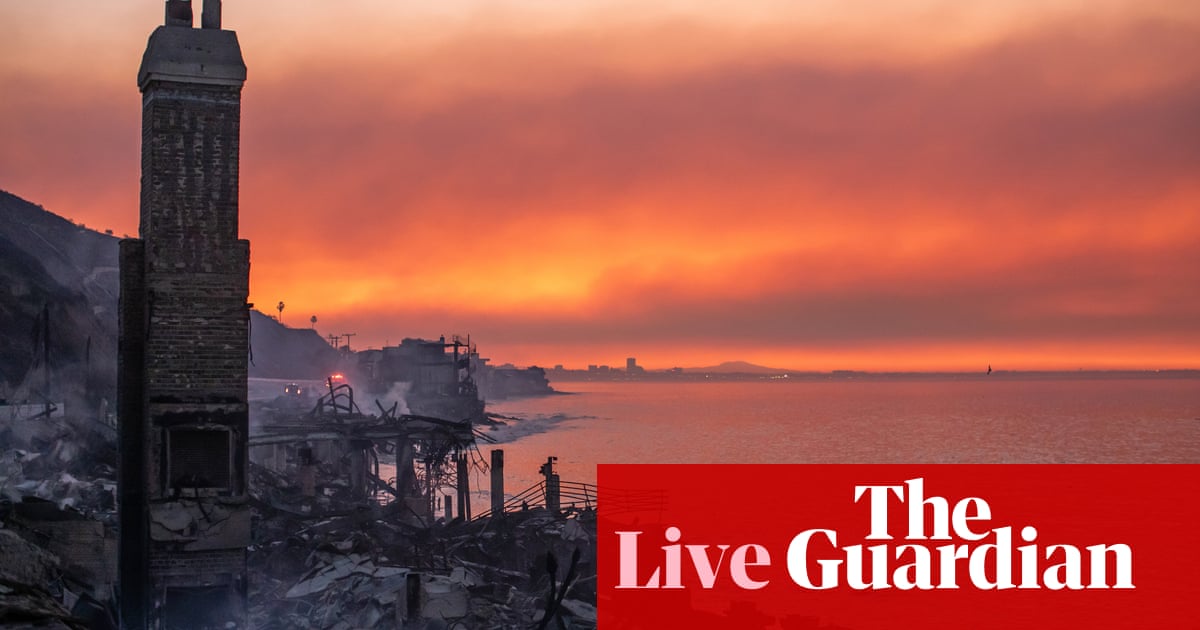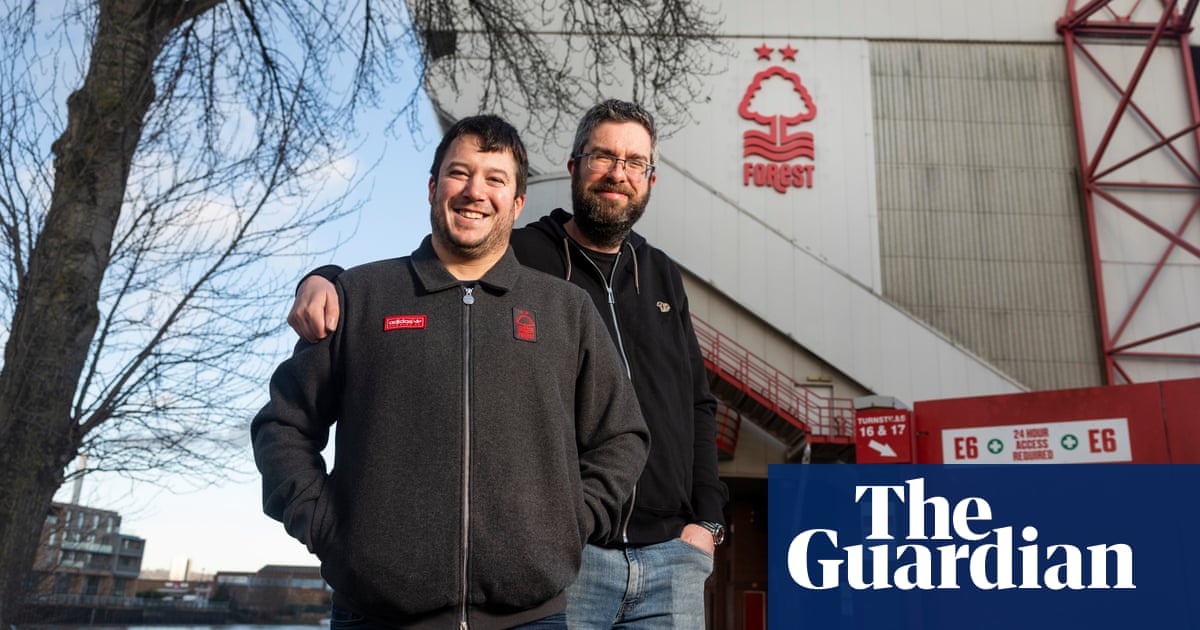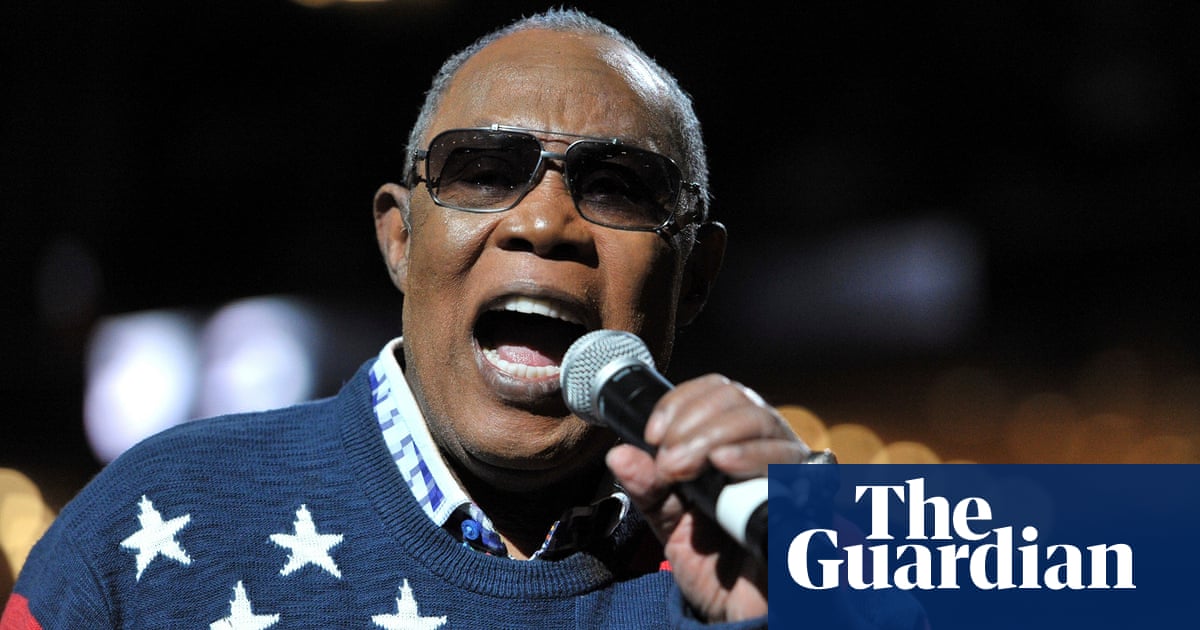The Australian climate change minister, Chris Bowen, has declared the landmark Paris agreement “is working” as it had brought the world back from “the brink of catastrophic 4C warming”, but argued countries must set the most ambitious emissions targets possible for 2035 to limit worsening global heating.
Giving Australia’s national statement on the conference floor at the Cop29 summit in Azerbaijan, he also pledged A$50m (US$32.5m) towards a global loss and damage fund to help the world’s most vulnerable people to repair the damage from climate breakdown. The funding was welcomed by climate campaigners, who said it was “the right thing to do”.
The comments about emissions reduction targets will raise expectations that the Albanese government will substantially ramp up its commitments when a new emissions target is set next year.
Initial advice from the Australian Climate Change Authority earlier this year suggested the country could achieve a cut of up to 75% below 2005 levels by 2035. The authority’s final recommendation – and the government’s announcement of its target – has been delayed, possibly until after the federal election due by May.
The UK was widely applauded last week after announcing a 2035 target of an 81% cut below 1990 levels, though campaigners said it needed to be backed by a detailed plan.
Bowen told Cop29 that a global stocktake of climate progress at Cop28 in Dubai last year showed that “we have come a long way” from the brink of a catastrophic 4C of heating before the Paris agreement was signed in 2015 to what is expected to be between 2C and 3C on the current trajectory.
Scientists say this degree of heating above pre-industrial levels would still lead to disastrous heatwaves and extreme weather events that would devastate lives, livelihoods and nature. Bowen said the stocktake showed “we’ve come far, but not far enough”, and urged the world to listen to Pacific island nations, where climate change was “not seen as subject for negotiation, but an existential and security threat”.
“This is a message that the world needs to hear, and a reality that the world needs to see,” he said. “That’s why we are bidding to co-host Cop31 in partnership with our Pacific family.”
On the loss and damage fund, Bowen said Australia’s A$50m made it the sixth largest contributor to the loss and damage fund that was set up after an agreement last year. He said it built on a A$100m contribution to the Pacific Resilience Facility, which supports locally-led, small-scale projects across the region.
Erin Ryan, from Climate Action Network Australia, said the funding was “the right thing to do” and would make “a real difference to kids who lost years of education after their schools were destroyed by cyclones, or families recovering from loss of income as their crops dried up in droughts”.
Julie-Anne Richards, from Oxfam Australia, said the fund was critically important to least developed and Pacific countries, and the organisation “warmly welcomes” the pledge.
On the new climate commitments due next year – known as nationally determined contributions, or NDCs – Bowen said “we must all strengthen efforts and deliver our highest possible ambition” to accelerate global climate action and the goal of limiting heating to 1.5C alive.
The 1.5C goal, which was enshrined in the text of the Paris agreement, has been dismissed as unreachable by some climate scientists given temperatures are rapidly approaching that level and more warming is locked into the climate system. But negotiators and advocates at climate talks have maintained support for it, in part because it emphasises the need to make deep cuts as rapidly as possible.
Bowen said Australia was “accelerating our transformation” to make the country an indispensable part of the global net zero economy and to help other countries decarbonise.
He said Australia believed “climate action makes economic sense at every level, from the household budget to the nation’s economy”, and emphasised the government’s promised Future Made in Australia policy that includes A$20bn support for clean energy investment.
Australia has faced renewed criticism at Cop29 for its continued support for coal and gas developments and expansions at the same time the government has argued it wanted to be a “renewable energy superpower”. Bowen said the point of Future Made in Australia was “not only to decarbonise and grow our economy, but to help our friends and neighbours decarbonise and develop their economies too”. “We know that we must keep moving, or the world will move past us,” he said.
On climate finance – the primary focus of the Cop29 talks – the minister confirmed Australia expected to deliver a previously announced A$3bn (US$1.95) between 2020 and 2025 to help developing countries cut emissions and adapt to the climate crisis. Advocates and analysts have argued this is substantially less than Australia’s fair share of what is needed to help the poor and vulnerable. The Climate Action Tracker last week described it as “critically insufficient”.
Bowen is co-chair of the negotiations on how to set a new climate finance goal to help developing countries. Those talks have progressed slowly, with countries divided over how to structure a fund that is expected to pay a minimum US$1tn a year in support.
Advocacy groups called on Australia to back a Pacific nations push for the loss and damage fund to be included in the new climate finance goal so that it was not ignored when wealthy countries made commitments.

.png) 1 month ago
5
1 month ago
5













































